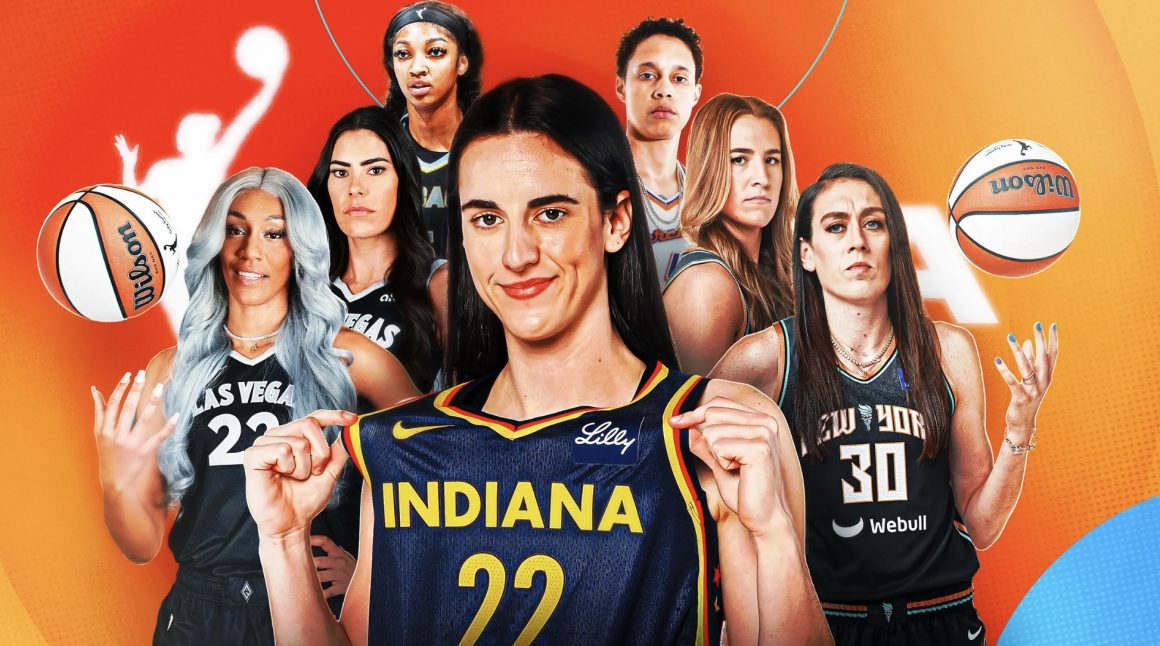
“No one watches women’s sports”: The missing storylines of the WNBA
By Emma Djukic, October 25 2024—
Women’s sports, particularly professional leagues like the WNBA, have long struggled with low viewership. Critics often point to a lack of excitement, fewer star players or simply the entrenched belief that men’s sports are inherently more entertaining. But the issue runs deeper than athletic ability or gameplay. Women’s sports are not suffering from a lack of talent—they’re suffering from a lack of storytelling. The narratives that drive fan engagement in men’s sports—rivalries, personalities, controversies and off-the-court drama—are often missing in the coverage of women’s leagues. And that absence is preventing fans from connecting with the athletes, teams, and the sport itself.
This kind of narrative-building around athletes—where the game is only part of the draw—rarely happens for women. To truly grow the audience for women’s sports, the media must shift its focus away from gender and toward crafting deeper, more compelling stories around the athletes themselves. The success of stars like Serena Williams or Caitlin Clark shows that when these stories are told, people are ready to listen.
So what is the issue?
One of the most overlooked aspects of sports viewership is the power of storytelling. It’s not just about the game itself—it’s about the drama, personalities and rivalries that happen beyond the court, field or track. In top-tier men’s sports, this dynamic is fully realized. For example, in Formula 1, drivers’ contract controversies and team politics are often as captivating as the races themselves. In tennis, epic rivalries between players like Novak Djokovic and Carlos Alcaraz have been cemented into the sport’s cultural fabric. Even in sports like baseball, where the pace may be slower, there is a rich culture of fan traditions, inside jokes and player nicknames that elevate the experience.
Women’s sports, unfortunately, have not had these narratives crafted to captivate larger audiences. The focus on women’s sports has been far too narrow, framed through a repetitive lens of gender politics rather than the rich personal stories, rivalries and unique identities that naturally arise in any competitive environment. It is a disservice to the incredible athletes to continuously be reduced to nothing more than their gender.
Caitlin Clark, a rising star in women’s basketball, serves as a perfect example of what is possible when there’s storytelling behind an athlete. Clark isn’t just an incredible talent on the court—her personality, confidence and developing rivalries (such as with players like Angel Reese) add layers of intrigue that extend beyond her stats. Fans aren’t just tuning in to see her play, they’re watching to see how her story evolves. It’s no surprise that when these narratives took center stage, interest in her games—and in women’s basketball more broadly—spiked.
If similar efforts were made to create and promote compelling narratives around other WNBA players and teams, fan engagement would likely grow at a much faster pace. People don’t just want to see a game—they want to feel like they’re part of an unfolding drama, something larger than the sum of its parts. However, for too long, women’s sports have suffered from the absence of these types of stories in the media.
Take the NBA, for example. Players like LeBron James, Stephen Curry and Kevin Durant are not just known for their skills—they’re followed because of their personal stories. The tension of Durant’s team-switching, Curry’s rise to fame as an underdog and LeBron’s career-defining moments are all storylines that keep fans emotionally invested. Rivalries between teams, personal feuds between players and even lighthearted memes that emerge from games all contribute to a culture that enhances the viewing experience.
If the same level of media attention were devoted to WNBA players, it could create an entirely new fan culture. A shift away from the “women’s sports” conversation and towards telling who these athletes are, what drives them and how their rivalries fuel the competition would make a significant difference. For example, the ongoing rivalry between Candace Parker and Breanna Stewart could be promoted with as much excitement as the famous NBA matchups, with coverage highlighting their different styles, leadership approaches and on-court tension.
Moreover, women’s sports have already proven that when the narrative shifts to focus on the athletes themselves, audiences follow. Look at the excitement around Serena Williams in tennis or Simone Biles in gymnastics—both have transcended their sports because their stories were built up in the media as more than just about their gender.
It’s time for women’s sports—and the WNBA in particular—to get the same treatment. The media should stop relying on tired narratives like “this is good for women” and instead tell us why it’s good for sports. Fans don’t watch sports to be reminded constantly that women can compete—they watch to see the action, the rivalries, the suspense and the human emotions that tie it all together. The athletes in the WNBA are ready to be seen for who they are—fully developed personalities, not just female athletes.
Final Thoughts
The future of WNBA viewership and women’s sports more broadly will depend on storytelling. As fans, we need to demand more coverage that builds up the players as individuals that delves into the rivalries, the off-the-court stories and the personal challenges and triumphs that make watching sports compelling. The talent is there. The drama is there. What’s missing is the narrative push from the media.
The WNBA’s growing viewership is a promising sign that things are beginning to change. But if media outlets, fans and organizations fully embrace the idea that these athletes deserve the same nuanced storytelling as their male counterparts, the potential for growth is enormous. Sports is about more than just stats—it’s about the stories and it’s time women’s sports got the chance to tell theirs.
